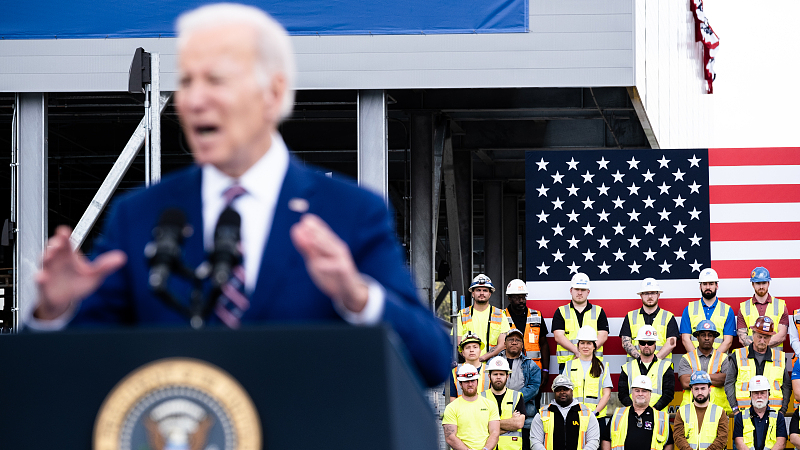The expected executive order from the Biden administration to screen outbound investment into sensitive technologies in China is a move that has garnered a lot of attention and speculation. The order’s intention is to curb the flow of U.S. capital and expertise to support the technological advancement that could empower Beijing’s military capabilities and potentially threaten U.S. national security. However, the implications of this decision reach far beyond its primary purpose, affecting various areas from the U.S.’s global financial position to worldwide supply chain pressures. This analysis will unpack the complexities and potential consequences of this executive order.
The Purpose of the Executive Order
The United States’ investment in sensitive technological sectors in China, including semiconductors, quantum computing, and artificial intelligence, is at the heart of this order. These sectors have become vital parts of China’s rapidly growing economy, and American investment has played a role in that growth.
However, the primary concern driving this executive order is the potential misuse of these technologies by the Chinese military. This fear is not unfounded, given the rapid technological advancement within China and its military modernization. The order aims to limit U.S. capital and expertise’s contribution to these developments, with a focus on national security interests.
Potential Impact on U.S. Investors
The immediate consequence of this order could be a loss of opportunities for American investors. By screening or stopping investments, they are shut out from one of the most vibrant and dynamic sectors today. Some critics argue that such a move might not address the underlying issue of America’s decreasing tech dominance and could potentially drive investors to explore new financial centers where their capital can be employed without restrictions.
This sentiment was echoed around two years ago when the Biden administration blacklisted 59 Chinese companies, deemed a national security threat due to their ties to the Chinese military, without substantial evidence. There is a perception that the U.S.’s financial leadership is being challenged both domestically and internationally, a point underscored by former Treasury Secretary Hank Paulson in a Wall Street Journal op-ed.
America’s Financial Leadership
One significant advantage that the U.S. enjoys as a financial center is the free flow of capital without any strings attached, a contrast to most other countries. This freedom, combined with the U.S.’s status as the world’s largest economy, its technological edge, and its control over global security, has historically made America a secure and attractive place for investments.
However, imposing investment restrictions may signal a level of insecurity, potentially eroding these advantages. The existing Committee on Foreign Investment in the United States (CFIUS) already places screening on foreign entities that want to invest in “critical” U.S. firms, such as military contractors. The new executive order may come across as unnecessary or counterproductive, especially given the existing structures in place.
Implications for Global Supply Chains
Beyond the U.S., the executive order may have a stifling effect on global development in these sectors. The interconnectedness of global supply chains means that any restrictions against China could potentially hurt other nations as well. The fact that Chinese researchers are outpacing U.S. researchers in artificial intelligence and other sensitive technologies further underscores this issue. If the U.S. restricts China, others may suffer, and the discrepancy in global know-how is only widening.
The Underlying Issues
The U.S. policies concerning China’s growing technological advantage may seem illogical to some. Critics argue that these policies cater to American nativism rather than addressing the real issues, such as domestic talent development and immigration policies.
There’s a growing concern about the state of U.S. education. A locally-funded system relying on local tax revenue has led to inequalities in educational resources, resulting in nearly 40% of eighth graders scoring below the basic level in U.S. history, and only 13% considered proficient.
Furthermore, America’s higher education dominance is slipping, with the number of U.S. universities in the top 100 falling, while China’s share is rising. The decreasing number of foreign applications to U.S. universities, partially attributed to perceived discrimination against Chinese students, is another worrying trend.
Conclusion: Will These Restrictions Hurt America?
China’s development in these critical sectors is likely to continue, with or without American capital. The question for Washington should be whether these investment restrictions are more likely to harm America than protect it. Given the potential negative impact on U.S. investors, the nation’s financial leadership, and the global supply chain, along with the failure to address underlying issues, the answer seems to tilt towards yes.
The Biden administration’s expected executive order raises complex questions and challenges that extend beyond the immediate goal of protecting national security. Its broader implications on the U.S. economy, global relations, and technological development must be carefully weighed and considered. This decision not only has potential short-term consequences but may also shape the long-term trajectory of U.S.-China relations, the global technological landscape, and the U.S.’s position as a global financial hub.
Read More:
